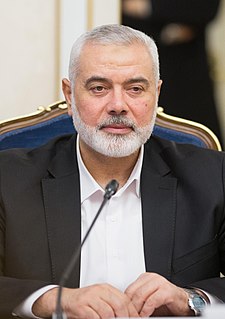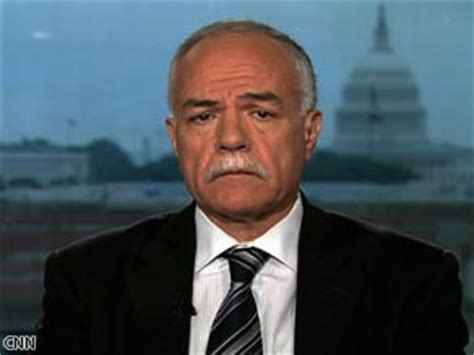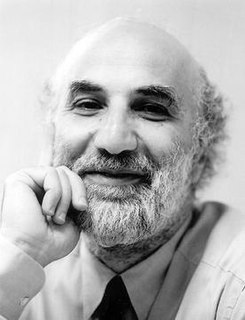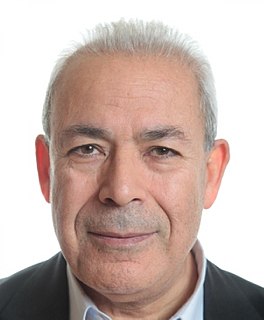A Quote by Ismail Haniyeh
We regard this as a continuation of the American policy based on oppression and the shedding of Muslim and Arab blood…We condemn the assassination and the killing of an Arab holy warrior. We ask God to offer him mercy with the true believers and the martyrs.
Related Quotes
All mankind is from Adam and Eve, an Arab has no superiority over a non-Arab nor a non-Arab has any superiority over an Arab; Learn that every Muslim is a brother to every Muslim and that the Muslims constitute one brotherhood. Nothing shall be legitimate to a Muslim which belongs to a fellow Muslim unless it was given freely and willingly. Do not, therefore, do injustice to yourselves.
We could not guard every water pipeline from being blown up and every tree from being uprooted. We could not prevent every murder of a worker in an orchard or a family in their beds. But it was in our power to set high price for our blood, a price too high for the Arab community, the Arab army, or the Arab governments to think it worth paying... It was in our power to cause the Arab governments to renounce 'the policy of strength' toward Israel by turning it into a demonstration of weakness.
Traditionally Marxism attracts the oppressed. This, however, is not the case in the Arab nation... The socialist programs in Arab history did not always come from the poor, but from men who had known no oppression and became the leaders of the poor. The Arab nation has never been as class-conscious as other nations.
I'm from a Lebanese-American family. And I've been had lot of contacts and - with Arab-American community, especially Arab-American filmmakers and actors and so forth. It's a community that, a minority that really hasn't been heard from enough. And so many of the stories that are told about Arab-Americans these days are just negative portrayals in the news, but also in television and film. So we're - we set out to try and offset some of those stereotypes.
The blood of Abraham, God's father of the chosen, still flows in the veins of Arab, Jew, and Christian, and too much of it has been spilled in grasping for the inheritance of the revered patriarch in the Middle East. The spilled blood in the Holy Land still cries out to God--an anguished cry for peace.
The current relationship between Syria and Iran is abnormal. It is unprecedented in Syria's foreign policy history. A new Syria will be an indispensable part of the Arab League and it will work on improving the role of the Arab League and the role of Arab states regionally, specifically because they took a historic and unprecedented decision to back the Syrian people.
Recall that the United Nations commissioned Arab scholars and analysts to publish the Arab Human Development Report. What causes the backwardness, the scholars wondered, of 22 Arab states, covering nearly 300 million people? Their conclusion? Of all world regions, the Arab countries scored the lowest in freedom, media independence, civil liberties, political process and political rights.
Jordan is many different things and there's many different parts of it. We don't ever really get to see a modern Arab city, a part of the Arab world where people are seemingly living their lives like everywhere else and also just a part of the Arab world that's surprisingly Americanized, with fast-food joints everywhere and shopping malls. Over the 30 years I've been traveling there, I really saw it grow and become modernized and much more Americanized in a way that surprised me as an Arab-American.
































